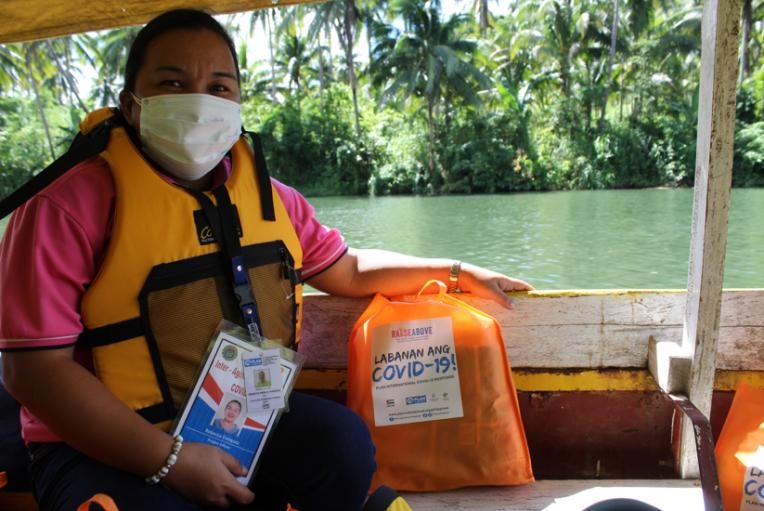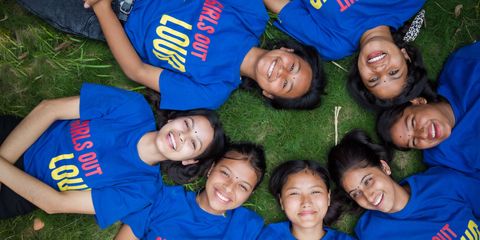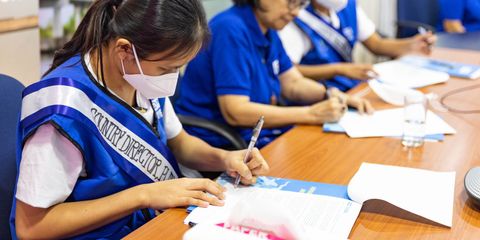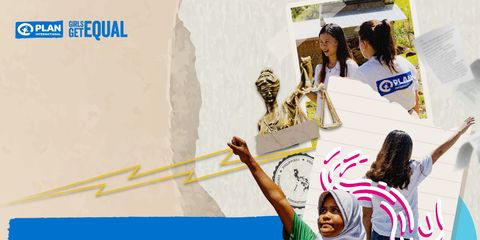REBECCA ROSE B. ENRIQUE
9 DECEMBER 2020

My name is Rebecca Rose.
Colleagues call me Becca; friends holler Becs; and my family prefers Lot-Lot, which roughly translates to “beloved.”
I am a woman and so much more: a young single mom, a friend, a nurse, a child rights advocate, a development worker, and a survivor.
Yes, I am a survivor.
I survived gender-based violence (GBV) and violence against women (VAW).
I hid this fact for a long time. I remained silent, ashamed of other people’s judgement.
GBV and VAW can be physical, verbal, emotional, financial, psychological, or sexual. Not one form is better than the other; all of these need to end.
For years, I pretended to be okay, but I was not. In fact, I was endangering not only myself but also my children’s lives.
In late 2013, my hometown of Tacloban City was devastated by Super Typhoon Haiyan (Yolanda).
I suffered from Haiyan’s wrath and lost several of my possessions, but at the same time, Haiyan paved a sort of escape. In the aftermath of the typhoon, I escaped from my abuser.
I went home to my family and slowly picked up my own shattered pieces.
For years, I was blindly dependent on my abuser. But this time, I finally learned how to stand up for myself and my children. I was no longer my abuser’s robot.
I was free.
Becoming an advocate
Soon after, I became a women’s rights advocate.
I started speaking up against GBV and VAW, in hopes of raising awareness.
My message is clear and simple: GBV and VAW should never happen.
We are all equal, we all have rights. None of us deserve to be abused or discriminated in any way or form.
Women like me are not just wives, not just partners, not just caretakers. We can be whoever we want to be.
As a woman, I can decide for myself, I am knowledgable and skilled, I can lead, I can live in my own terms, and I can contribute to making our society a better one.
I am a woman in-charge of myself.
And with these messages, I want to empower my fellow women.
Community development
Two years after my feminist aha moment, I took on another life-changing journey.
I started working with Plan International as a Community Development Facilitator, as part of its Empowerment for Sustainable Livelihood efforts.
I organized Community Savings Groups across barangays in Eastern Samar, allowing me to train families on financial literacy.
I trained young women and young men on gender equality. I also helped young aspiring entrepreneurs start their own small businesses through our Community-Based Enterprise Development initiative.
And I taught basic life skills to the youth of Samar—this includes time and budget management, personal hygiene, interpersonal communication skills, adolescent health, mental health, goal-setting, work ethics and values.
At the end of this project, I found myself in Northern Samar, doing the same for their communities. And as they say, the rest is history.
Today, I am here in Western Samar as part of the RAISE Above Project. And I continue to educate, inspire, and empower communities.
In my team, I found a second family. We’ve had several memorable experiences not just as colleagues but also as friends.
My development and humanitarian work has helped me regain my lost confidence, and I want to do the same for the children and adolescents I train. I want to equip them with the right skills, knowledge, and values—so that they, too, can start believing in themselves.
Through my work, I’ve developed a deeper understanding of how children are robbed of their right to education due to poverty, forced marriages, teenage pregnancies, and the lack of support from both parents and local governments.
Although I cannot solve all these problems, I promised myself that I shall do my best to be part of the solution.
“One step at a time,” I told myself.
Building trust
To gain trust and build rapport with our project participants, I frequently visited their communities.
I spoke with parents, children, teens, the elderly, teachers, students, barangay leaders, and local government officials. I wanted to learn from them and I wanted them to speak up.
Together, we identified issues to be addressed.
In every step of the way, I saw the community as a valuable partner. Together, we planned, implemented, and evaluated the activities. It’s teamwork.
I am proud to share how this collaboration has successfully influenced barangays to increase budget allocations for education, particularly for the Alternative Learning System (ALS), which allows Filipinos to continue their education regardless of their personal life circumstances.
This helps reduce the number of out-of-school youth.
ALS can help those who cannot physically go to school everyday for a variety of reasons—they are already working; they are taking care of their children; they have an illness or disability; they live faraway from schools; or they have financial problems.
I am proud of all the ALS learners and teachers I have met in my journey.
My only wish
My work as a Community Development Facilitator has granted me more patience.
The people I meet come from different backgrounds, with their own stories and struggles, and they all deserve to be treated with dignity, patience, and respect.
I have learned so much from doing what I do best, and yet I know there is so much left to learn. After all, every day is a learning opportunity.
One of the greatest lessons I learned on the job is to value the rights of my children even more.
Because of this, I became closer to my kids. And in return, they have become more open towards their mother.
I am raising my sons to become independent, wise, compassionate, and respectful of diversity and inclusion.
My harmonious relationship with my sons is the most precious thing in my life.
I want our home to be filled with as much love and respect, and this is the same wish I have for all the communities I visit as a development worker.
If you or anyone you know are experiencing GBV or VAW, please report it to your nearest police station or social welfare and development office. Report cases, save lives!
Rebecca Rose Enriquez is a Community Development Worker at Plan International Philippines. She is currently with the RAISE Above Project, under our Youth Economic Empowerment Program.
The RAISE Above Project empowers adolescent girls, young women, and young men by making them better realize their rights to education and skills development.
The RAISE Above project is funded by Dubai Cares, part of Mohammed bin Rashid Al Maktoum Global Initiatives.
Categories: Campaigns, Protection from violence


